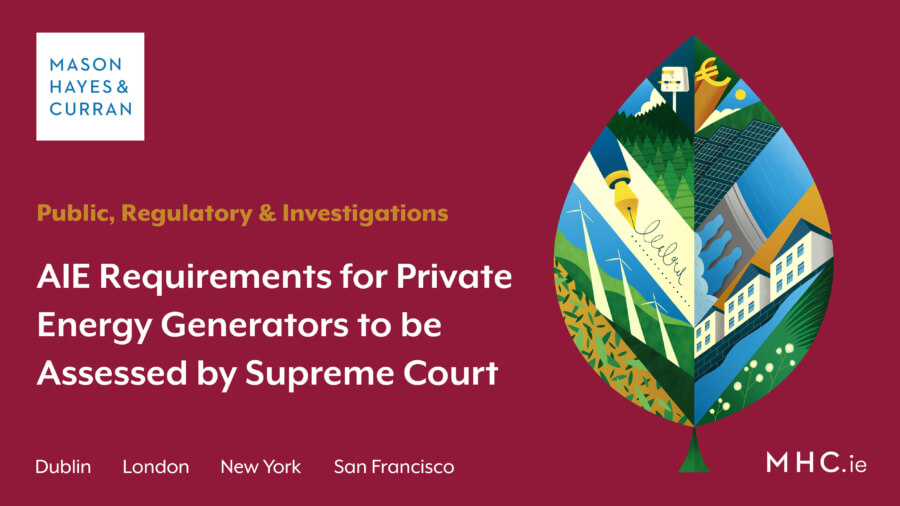
The Supreme Court has decided to hear an appeal by both Right to Know CLG (RTK) and the Commissioner for Environmental Information together with a cross appeal by Raheenlagh Power DAC (RP). This is despite the Commissioner not participating in the Court of Appeal hearing.
The Court of Appeal found that RP was not a public authority for the purposes of the European Communities (Access to Information on the Environment) Regulations 2007 (AIE Regulations).
We have previously covered the High Court and Court of Appeal decisions.
Brief background
RP is a company, the shares of which were initially divided between ESB Wind Development Limited, which is a subsidiary of the Electricity Supply Board, and Coillte. Subsequently, Coillte’s shares were sold to a private company.
In September 2022, the Court of Appeal ruled that RP was not a public authority for the purpose of the AIE Regulations. This was welcome news for many entities similar to RP as it meant that they were no longer subject to the administrative burden associated with being an AIE public authority and all that it entails.
The Supreme Court recently decided that the case satisfied the constitutional threshold for the grant of leave to appeal and that the proper construction of the AIE Regulations was of general public importance.
Commissioner’s view of Court of Appeal Judgment
The Supreme Court’s judgment notes the Commissioner’s view that his office will have difficulty in applying the decision of the Court of Appeal and that it is inconsistent with the approach of the Court of Justice of the European Union (CJEU) in Fish Legal and Emily Shirley v. Information Commissioner and others (Case C-279/12). In that case, the CJEU stated that the definition of “public authority” is a functional one and that it captures entities governed by public or private law, which are:
- Entrusted with the performance of services of public interest in the environmental or other fields
- Vested with special powers for that purpose which go beyond those of persons governed by private law
Reference to the CJEU
Both RTK and the Commissioner believe that a reference to the CJEU will be necessary but do not agree on the questions and issues to be referred. The Supreme Court has not given any views as to whether this reference should be made.
The questions to be addressed
The Supreme Court has set out the issues which need to be addressed in deciding the case including:
- Whether a party is entitled to appeal a decision of the Court of Appeal in which he/she did not participate
- Whether a party can appeal against a decision made in its favour on the basis that the party disagrees with the reasoning by which the result was reached, and
- Whether the Commissioner was correct, in its initial decision, to conclude that RP was not a public authority within the meaning of the Regulations and Directive.
Conclusion
The Supreme Court’s eventual judgement will have substantial implications for privately-owned companies in the energy sector and more widely. Joint ventures similar to RP will be keen to see whether they will be subject to the enhanced administrative burden associated with AIE requirements.
Only time will tell what the Supreme Court, or potentially the CJEU, will determine.
For more information on the AIE Regulations, contact a member of our Public, Regulatory & Investigations team.
The content of this article is provided for information purposes only and does not constitute legal or other advice.







